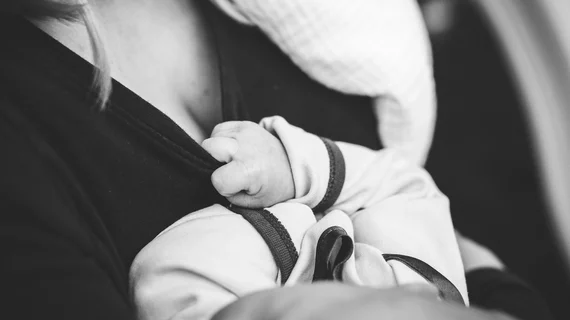42% of breastfeeding radiologists cite an unsupportive work culture: 4 steps toward change
Women account for 48% of early-career radiologists, but an editorial published Tuesday in Academic Radiology warns this could drastically change if policies that support mothers and breastfeeding women are not prioritized.
Survey results published earlier this year revealed the obstacles breastfeeding radiologists face. The lack of a dedicated lactation room or private space of any sort, unsupportive work environment and too little time were among the key issues cited by respondents.
Some institutions have taken important first strides in supporting these women. However, there is still work to be done and voices to be heard.
“If we are not thoughtful and intentional as a specialty in addressing the barriers experienced by female radiologists, we will soon find ourselves with talented young women radiologists nowhere to be found,” Katerina Dodelzon, MD, with New York-Presbyterian Hospital/Weill Cornell Medical Center, wrote.
The doctor recommended key changes that practices need to address, with a few summarized below.
- Give breastfeeding women a private space to pump. Only 38% of survey respondents stated their workplace had a dedicated space available to pump during their shift. This could result in women not achieving their breastfeeding goals and lead to both guilt and burnout.
- Allow mothers to set aside time for pumping. The biggest complaint made by mothers who took part in the survey was the lack of time available to pump. University of California, San Francisco, created an innovative program for radiologists-in-training that provided 1.5 work-related value units for every 30 minutes spent breastfeeding, thus protecting women from productivity penalties.
- Supply pumping equipment. Toting equipment back and forth between work can be a burden; but supplying women with pumping equipment can make them feel supported, while also saving them time and money. It is estimated that for every $1 spent towards lactation support there is a return of $2-$3.
- Normalize parental leave. Survey respondents reported a median parental leave of eight weeks, which is four weeks less than the American Academy of Pediatrics recommends. Providing appropriate, recommended paid leave would allow parents time to bond and get into a routine, as well as encourage recruits and potentially improve retention and performance, the author noted.
You can read the full editorial in Academic Radiology.

